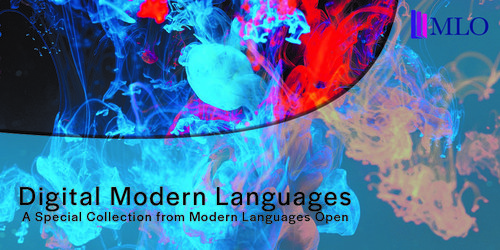
Language Acts and Worldmaking is delighted to announce the publication of a new Special collection Critical Digital Pedagogies in Modern Languages. Edited by our Digital Mediations research strand, Paul Spence and Renata Brandão, the collection is out now on Modern Languages Open.
Introducing the Special collection, Spence and Brandão write, "Digital culture and technology offer both new opportunities and new challenges to the study of modern languages and cultures. Language practitioners and learners already engage with digital media in a variety of ways and in some areas (notably language learning) this engagement has both history and depth. Nevertheless, there has been relatively little discussion of the place and role of ‘the digital’ across Modern Languages, and practitioners are often not clear how to develop critical digital literacies in their educational or research practice". This Special collection therefore offers an "assortment of open educational resources which can be instantly applied and adapted in numerous Modern Languages educational settings. It presents the theoretical and practical context for a range of critical digital approaches in the field, including intermedial and transmodal interactions, online Content and Language Integrated Learning, task-based simulated environments, digital curation and annotation, geospatial representation, computational text analysis and corpus linguistics".
This collection of Digital Modern Languages tutorials is the outcome of a Digital Modern Languages tutorial writing sprint organised by Language Acts and Worldmaking's Digital Mediations research strand. Language Acts is funded by the Arts and Humanities Research Council (AHRC) under its Open World Research Initiative (OWRI). Language Acts gratefully acknowledges the assistance of King's College London's Arts and Humanities faculty, which provided the support to make this collection open access through its Education fund. To learn more about how the collection came about, read Spence and Brandão's blog for Liverpool University Press here.